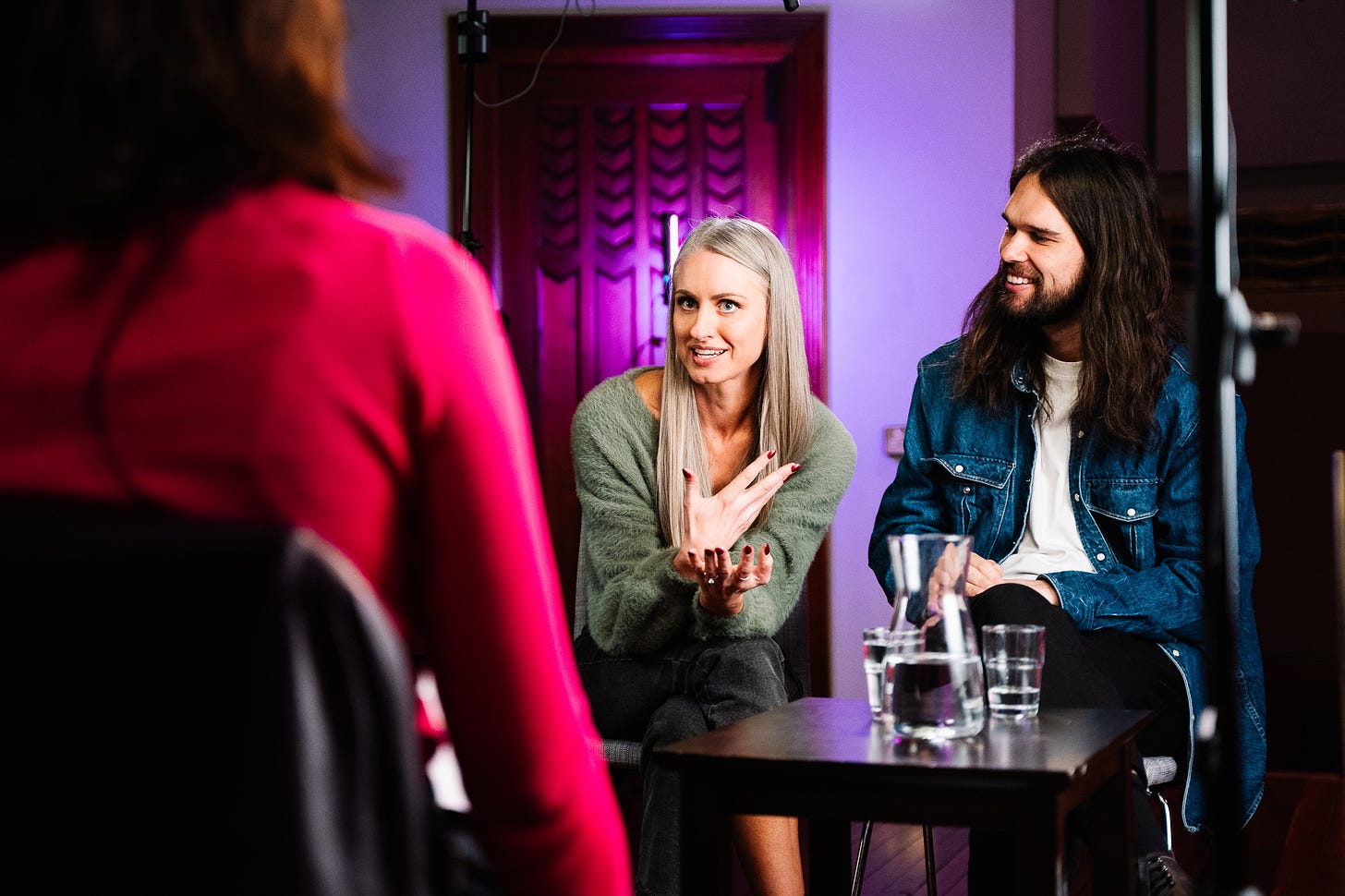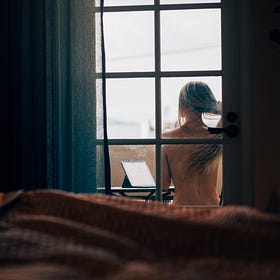Am I Safe?
“How do you keep yourself emotionally safe”? The TV Presenter asked me.
I have watched my husband with other women on countless occasions. The pleasure and desire that shoots through my body does not feel unsafe to me. Our relationship or my mental health does not feel negatively impacted by these experiences. My husband feels the same.
When I am with others, it brings joy and pleasure to him.
Maybe we are a bit ‘weird’ by social norms, but we don’t mind. When I think of being ‘emotionally unsafe’, it is not non-monogamy that comes to mind. If my husband and I were to lie, manipulate, scream at, shame or gaslight one another, then we would be firmly within emotionally unsafe territory.
We were recently interviewed by a journalist for a documentary that will come out sometime next year. The usual questions were asked of course, such as ‘do you ever get jealous’ and ‘do you meet each other’s partners’. But this question around “emotional safety” gave me pause.
This question feels lightly loaded with an assumption that we are engaging in ways of relating that might be ‘emotionally unsafe’. I wasn’t offended by the question but it was a reminder that this could be what many people call into question when they first hear about non-monogamous relationships.
Is non-monogamy responsible for putting people at risk of being emotionally unsafe?
There are people who lie to, and gaslight their partners. Many of them are monogamous.
There are also people who practice ‘ethical’ non-monogamy who are incredibly destructive and uncaring.
This comes down to the individuals and not the relationship framework.
‘Emotional safety’ is not determined by a particular relationship structure. I know people who are in monogamous relationships that interact with one another in ways that would be considered emotionally unsafe in my own marriage. Behaviours such as uncontrolled verbal disagreements, fighting in front of children, giving one another the silent treatment when there is relational conflict - the list goes on. These are all behaviours that have no place in our relationship and family.
People have their own boundaries around what they will or won’t put up with in a relationship. To break one’s own boundaries or overstep the boundaries of their partner is where things enter into the danger zone. This isn’t about being non-monogamous, it is about being clear about what your relationship does and doesn’t make space for.
It is about caring for one another’s feelings.
The reality is that what might feel emotionally unsafe to you could feel incredibly empowering and erotic to me. In the same way that what could feel incredibly oppressive to me, could feel safe and comforting to someone else. These are the reminders of our differences that reach across individuals and cultures.
Having your partner go and be with someone else could feel emotionally unsafe if you are looking out into the world through a monogamous lens. But instead of putting our own values and expectations onto others, it is an invitation to remember that we are all just walking perspectives… seeing the world through our own internal lenses.
There is something about intimate relationships that can challenge the understanding of people having their own individual experiences and differences. I am aware of how intensely people can believe things to be true when it comes to love and romance.
What I notice in my marriage and in the non-monogamous relationships in my social circles is the care that people have for one another. When you can get to a place within your relationship where you can respectfully navigate each other dating or seeing someone else, all of the common, yet smaller negotiations of domestic life feel so much easier.
We don’t sweat the small stuff because we have learnt to navigate the big stuff.
I feel safe to bring up any topic, whether it be a concern, fear, desire, hope, parenting or home logistic at any moment, knowing that I won’t be met with resistance or defence. To me, this is an incredibly safe space to be in.
Whenever I am asked a question that feels to be rooted in fear or concern, instead of becoming defensive, I remember that most people might not genuinely believe that non-monogamy actually works. This is completely understandable. I know that many will assume that one of us is being treated poorly within our relationship and that compersion surely “couldn’t be real”. To me, this is simply from a lack of understanding and representation.
As the years go by, I am met with a wide range of responses at the way in which I share about being non-monogamous, and I feel at peace in knowing that I don’t need to be liked by everyone. People are allowed to not agree with how I live my life... and that is totally fine. It is not my job to try and convince them otherwise.
Whilst I don’t need people to agree with my choices, I hope that as a society we can come to more of an understanding of the vast perspectives that we all hold, whilst also staying kind and respectful to one another.
All of our beliefs come from the story of our past, and we do not always process new information in the same way, or with the same levels of openness.
From The Archive
Ep. 39 - Cheating & Infidelities in Non-Monogamy
On today’s Premium Video episode, Abbey and Liam reflect on Ashley Madison, the ethics of cheating, what constitutes infidelity in a non-monogamous relationship & more.
Jealous Rage
I could feel the heat rise through my body as my stomach sunk. Was this really happening? Is what I am feeling jealousy? This felt bigger than the complexities of jealousy. I realised that I was in a complete state of fear. I looked around the party at all of the people laughing and chatting and I could feel the beat of the music thudding deeply through my body. Was it getting louder?






Thank you for always giving me something to think about with your writing.
So beautifully articulated, thank you.